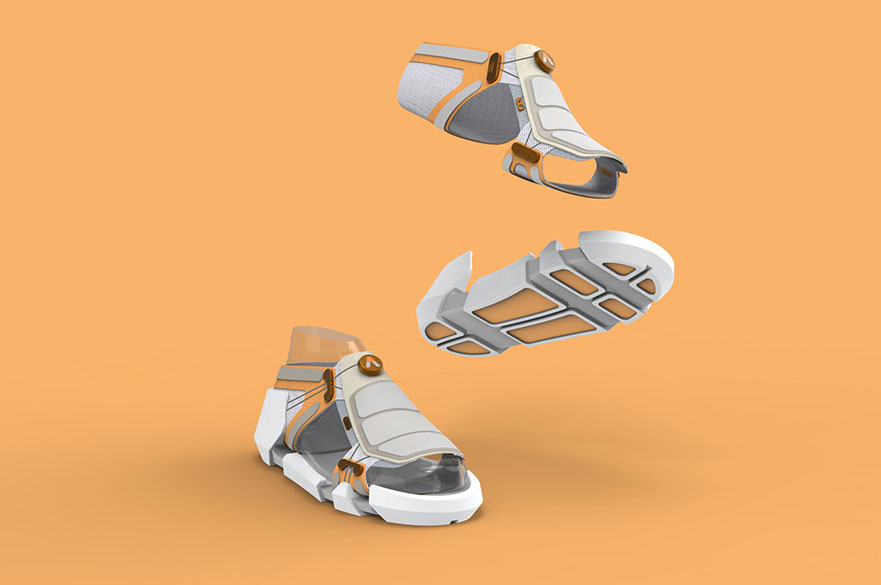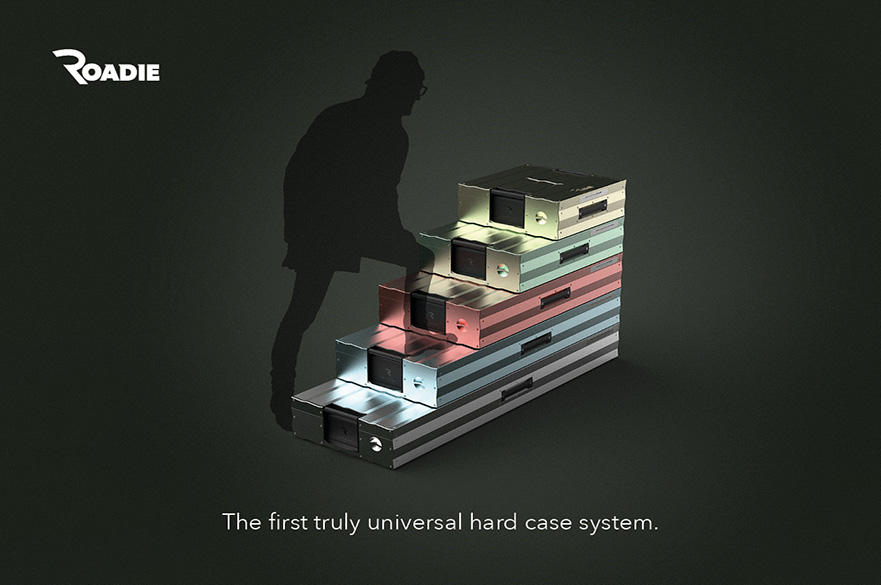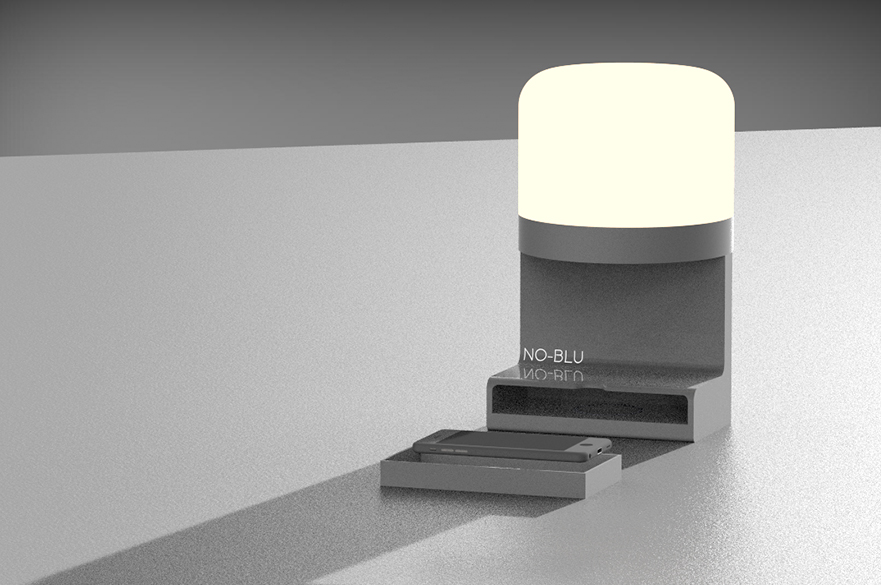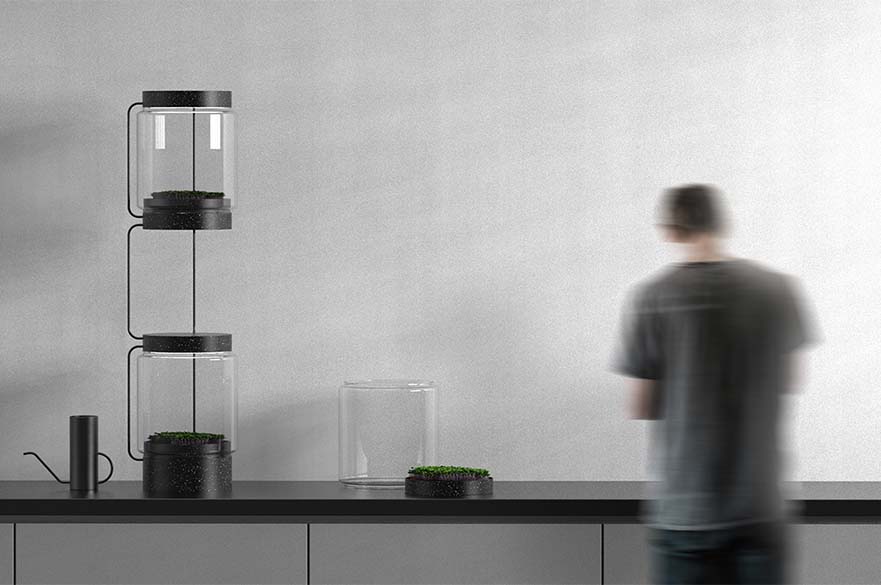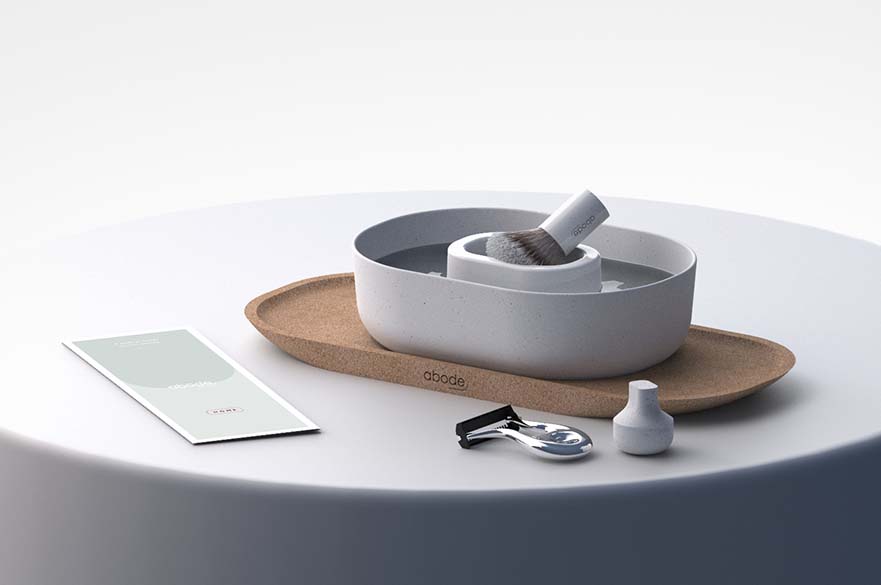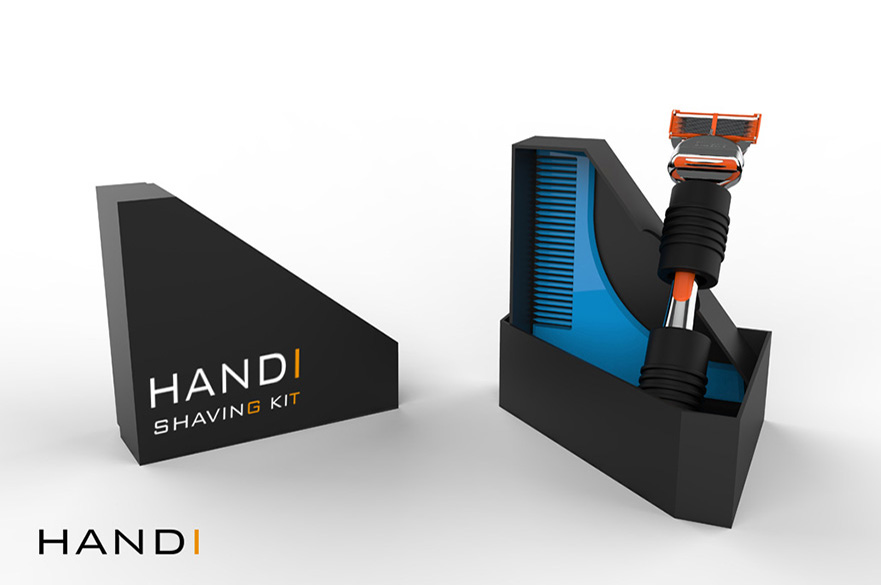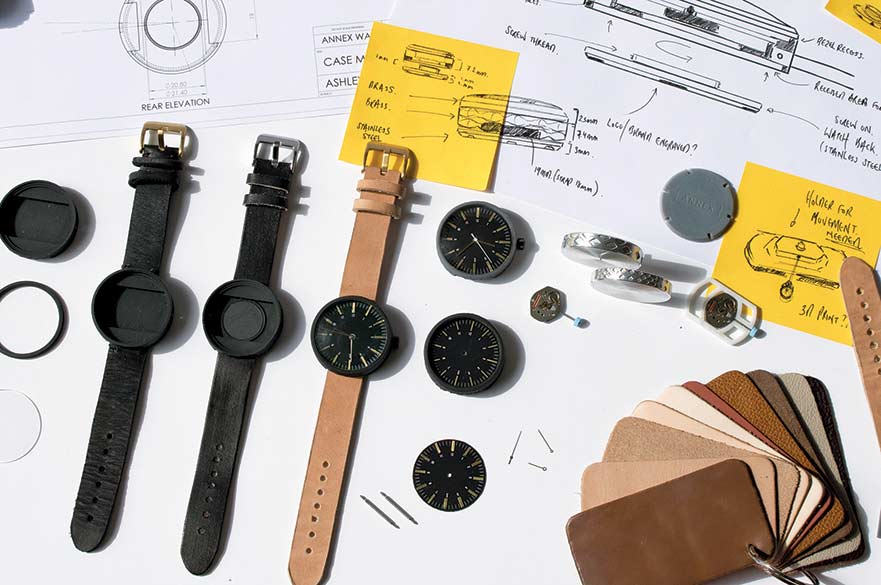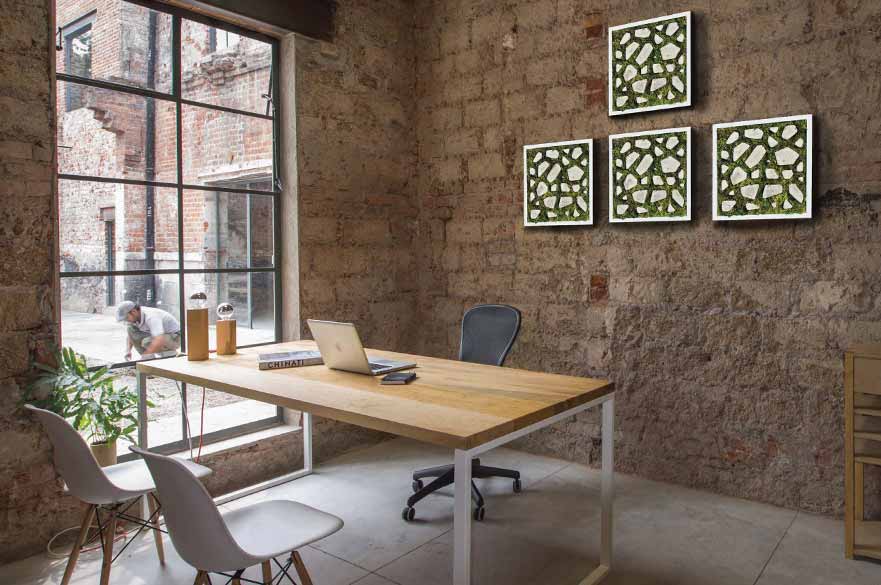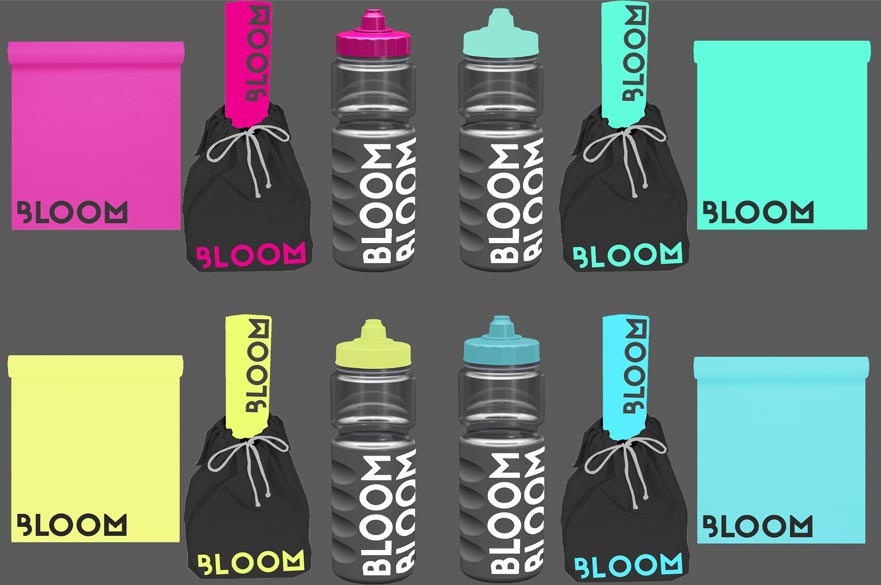5
Product Design BA (Hons)
- Level(s) of Study: Undergraduate
- Typical Offer: 104 - 112 UCAS tariff points
- UCAS Code(s): W241 (with placement year) / W243 (full-time)
- Start Date(s): September 2024
- Duration: Four years full-time with placement year, three years full-time
- Study Mode(s): Full-time / Sandwich
- Campus: City Campus
Introduction:
Product designers create the products, services and experiences that we use in our daily life. If you are creative and care about shaping our future relationships with artefacts and technology, then product design offers you a doorway to an exciting, ever evolving discipline that shapes people’s lives for the better.
Our teachers don’t just teach. They’re collaborators, constantly encouraging you to develop your own unique design style. We’ll plug you into the industry from day one; you’ll be pushing live briefs to the edge of your imagination as you explore the needs of users, markets, and manufacturers. You’ll create with your mind, your hands, and cutting-edge software.
You’ll learn how designers guide projects as visionaries and leaders, and as the glue between specialists. You’ll be part of a studio culture that builds confidence through community, developing your work from preliminary sketches to fully functioning prototypes. Through placements, competitions and exhibitions, you’ll have the chance to meet and impress some of the biggest names in the game.
We’ve built this course in consultation with product design’s most influential employers. We know what they want, and that’s what we teach: with hard work and creative bravery, you could be following our global network of alumni to the likes of Adidas, Puma, Sony, Speedo, the BBC, Habitat, MADE.COM, and Matter.
Explore the work of our graduating students in our Student Showcase.
-
2nd most sustainable university in the world (UI GreenMetric World University Rankings 2023).
-
94% of Product Design Sandwich students are positive about the teaching on their course (NSS 2023).
-
94% of BA (Hons) Product Design full-time students are employed or in further study within 15 months of finishing their degrees (latest Graduate Outcomes survey 2020/21).
-
You’ll work on live project briefs with real industry clients. We’ve already welcomed the likes of Nestlé, PepsiCo, W'innovate, Herman Miller and Speedo onto the course, and that list of big-time industry partners is growing all the time.
Main image: Work by Lucy Glover
What you’ll study
Embark on a dynamic journey in product design, unlocking your creative potential. Develop a unique design style and toolkit for your career. Embrace risk-taking, challenge briefs, and graduate with skills valued by top employers. Dive into contemporary design evolution, learning to create innovative products based on solid design principles. Experiment with materials and techniques in our hands-on studios.
Here’s a year-by-year breakdown of what you’ll be studying during the course.
Year One
- Introduction to Design (20 credit points)
- Professional Design Contexts (20 credit points)
- Design for Markets, Users & Manufacture (60 credit points)
- Design Communications (20 credit points)
Year Two
- Professional Practice (20 credit points)
- Advanced Design Communications (20 credit points)
- Design Production, Markets & Innovation (20 credit points)
- Elective Design Project (40 credit points)
- Exploring Design Futures (20 credit points)
Year Three
- Placement
Final Year
- Self-Directed Projects (Product Design) (80 credit points)
- Commercial Project (20 credit points)
- Exploration & Context (20 credit points)
Introduction to Design (20 credit points)
- You will begin to develop an understanding of the key attributes of being a designer in all that you do, especially in applying safe working practices within the studios and workshops. You will study issues and ideas exploring design from political, technological, social and economic perspectives.
- The aims of this module are therefore to develop knowledge and comprehension of the fundamental processes and practices of design; to promote imagination and creativity in the solving of problems and the development of artefacts; and to develop reflective, inquisitive, passionate individuals capable of debating issues in a critical manner and responding to the uncertainties and design challenges presented by the modern world.
- As part of this module you will learn key design communication techniques, which is a significant tool for any designer in supporting the design process. This will include a range of media and methods in 2D and 3D i.e. sketching, basic modelling and presentation skills.
Professional Design Contexts (20 credit points)
- You will contextualise your studies by considering key theories and concepts related to design, and apply these in practical scenarios. You will be expected to undertake research to inform and support your design activity and to communicate the narrative of your research, proposals and resulting outcomes to your tutors and peers.
- Alongside the contextual aspects in this module, you will also focus on design identity, specifically advancing your awareness of the design profession. As such, you will consider your position as a future designer, the opportunities available for designers, and developing your own identity within this field.
Design for Markets, Users & Manufacture (60 credit points)
- This module aims to develop your awareness of design; understanding the practical nature of design, markets, users and manufacturing. You will consider and apply these topics to design processes and relevant design methodologies that are often attributed to the creative perspective of product design.
- You will undertake a range of design projects, which will be individually or team-based. You will draw upon the learning you gain across this module when engaging in these projects in order to develop your own design practice.
- You will experience a range of design projects in this module, undertaking a number of product inspired projects that will involve the expression of your creative and technical talents.
- You will focus on the key factors related to the product design course; commercial context of design, users and markets, which are aspects integral to and for designers.
Design Communications (20 credit points)
- This module aims to develop your awareness of design; furthering your design skills and expanding on design communication as a tool to develop your own design processes.
- Studies on the module involve a number of techniques including sketching and rendering, computer aided design (CAD), modelling in 3D, verbal, electronic and written presentations. You will also develop your ability to present information in front of your peers, draw computer based skills, model in three dimensions, plan your time, gather information and communicate.
Professional Practice (20 credit points)
- The Professional Practice module will help you to contextualise your design studies in a professional remit. You will consider the broad view of the design profession, both historical and contemporary, and question where it is going in the future; along with reflecting on where you might sit within this profession. This will be supported by a work-like experience, framed by the Conversations on Design series delivered by industry professionals.
- This module will develop your critical and analytical skills to justify and evaluate your design approach. You will also learn about key subjects areas such as design management techniques, IP, sustainability and commercial awareness. You will develop a keen awareness of the breadth of the design industry, and the roles and ethical responsibilities of designers, manufacturers and consumers.
Advanced Design Communication (20 credit points)
- This module aims to further develop your design skills and expanding your awareness of design communication as a tool to develop your own design processes.
- This modules will help you to develop and utilise advanced communication techniques relevant to the design industry; CAD software, graphic and visual communication techniques, sketching, model making and rendering methods used to communicate design from the inception to manufacturing stages.
- This module enables you to develop your communication skills, which will enable you to enhance the work for the other level 5 modules; to create your portfolio, CV, design work and other industry facing material
Design Production, Markets & Innovation (20 credit points)
- This module will build on the knowledge, skills and attributes you have learnt in the first year of your studies and develops them to give you the confidence to practise as a product designer within the industrial and commercial parameters associated with the profession.
- Central to the module are a series of product design projects for which you will be given design briefs with real time deadlines. The focus of these projects relates to significant issues designers commonly face in their work; such as user centred design, ergonomics, digital design and changing culture and commercial markets. You will be expected to realise the full format of a designer’s outputs i.e. research, technical reports, technical drawings, CAD work, sketches, renderings, models, prototypes and simulations to an industrial and commercially accepted standard.
- The module focuses on a range of commercially-driven design projects and activities to provide a clear emphasis on the design profession. You will undertake a number of different projects, real-life ‘live’ briefs from industry and competition work, offering a clear work-like experience. The projects focus on user needs and characteristics, the market, product manufacturing, and commercial awareness.
Elective Design Project (40 credit points)
- This module centres around individual project choices. You will have themes, provided by your course team, that you can select a project from, and you will work on this for the entirety of the module.
- This module will help you develop your ability to conduct a project, integrating knowledge and skills you have gained from the programme.
- This module is design-orientated which may involve selection of materials, processes, prototype making, product testing and evaluation. Your approach to practical work will show autonomy, initiative, risk-taking and innovation and be clearly articulated and contextualised through visual, written and verbal means.
Exploring Design Futures (20 credit points)
- This module gives you the opportunity to explore and research a subject of your personal interest (based on course themes). The key outcomes of this is a research portfolio where you outline the research and key findings, trends and ideas that forms the thinking for your elective project work.
- The research document will focus your thoughts and plans for that which you intend to design and produce a body of work for later in this year. It also stipulates the plan for the project; specifically, the direction and choices you wish to make during the project. The format for this research portfolio will be discussed with you but these can range from a standard written piece, a visual essay, a film, or a critique. Topics should challenge you to source information, to maintain a sustained argument and to be critical and reflective.
In your third year, you'll have the opportunity to take a year-long, full-time placement. This year in industry will offer you hands-on experience, adding invaluable knowledge and skills to your CV. Many students return to their placement company after graduation, having developed a useful network of contacts within the industry.
Recent placement destinations have included Nestlé, Lego (Denmark), The Walt Disney Company, Adidas, Urban Outfitters and Nestlé, working in roles such as toy designer, junior designer, assistant designer, and Disney Design and Creative Intern. The majority of placement roles include paid salaries.
Successful completion of the placement year leads to an extra qualification – the Diploma in Professional Practice.
You'll also have the opportunity to undertake a European Project Semester during your third year with one of our partner universities. This option allows you to spend half a year studying abroad, and the other half gaining work experience on placement. We've got links with Universities in Spain, France, Austria, The Netherlands and Germany amongst others.
Self-Directed Projects (Product Design) (80 credit points)
- This module encourages you to explore, research, propose and develop ideas, model, develop concepts and products through a chosen, self-regulated projects. The synthesis of information, skills and learned knowledge will help you develop your portfolio and personal stance on contemporary design.
Commercial Project (20 credit points)
- This module encourages you to explore, model, research, propose and develop ideas, concepts and products through a number of chosen and self-regulated projects.
- Your work will be driven by live industrial/commercial input and partners, developing real world solutions. The objectives of this module are therefore to promote the application of your skills, knowledge and understanding of design methodologies in the creative realisation of products, and to understand your own practise in a professional context.
- The Commercial Project Element projects are, set by industry/commerce or recognised student competitions. Commercial Projects have been run with companies such as: Habitat, Made.com, Forpeople, Kinner Dufort, Howdens, Very, Shoe Zone, Design Innovation in Plastics, RSA, Starpack, Allermuir, The Conran Shop, Magis.
Exploration & Context (20 credit points)
- The module gives you the opportunity to explore and research a subject of your personal interest that links to the self-directed project. The key outcome of this is a scoping document in which you present and discuss the research and key findings on topical, and relevant subjects of significance, that forms the thinking for your self-directed project work later on.
- The scoping document will focus your thoughts and plans for that which you intend to design and produce a body of work for the self-directed module.
Don’t just take our word for it, hear from our students themselves
Student Work
Video Gallery
How you’re taught
Immerse yourself in dynamic course content through engaging sessions like lectures, seminars, workshops, and design sessions. Leverage our virtual learning environment, NOW, for self-directed projects. Beyond scheduled sessions, embrace independent study—preparing for lectures, researching, completing coursework, and expanding your portfolio through directed reading. Benefit from the insights of external professional practitioners, ensuring a continual enhancement of your learning with real-world perspectives.
Our Product Design community
Dive into our dynamic Product Design community — a blend of creativity, support, and challenge. Collaborate seamlessly with classmates, tutors, and experts to shape your unique design identity from day one. Embrace teamwork to tackle diverse design activities, from idea experimentation in our studio to crafting CAD models and prototypes in our workshops. This environment is designed to inspire and prepare you for the creative challenges ahead in your studies and career.
Study trips
Field trips and study visits are an important part of your learning. Trips may include site visits and visits to practices, museums, exhibitions and events. Where a trip is mandatory it will be aligned to your modules and inform project work, and substantive costs – including travel and accommodation – will be paid for by the school. Optional trips may also be organised which can provide additional opportunities to enhance your knowledge and experience. Optional trips may incur a cost to the student. A valid passport and any associated visas will be required for trips outside of the UK.
How you’re assessed
You’ll be assessed through coursework, which will consist of projects, reports, presentations, prototypes, exhibitions/project outcomes, scoping documents, essays and a portfolio.
| Year One | Coursework | 100% |
|---|---|---|
| Year Two | Coursework | 100% |
| Year Three | Optional placement year | |
| Year Four | Coursework | 100% |
Careers and employability
The course is designed to prepare you to succeed in the design industry, through work placements, working on real projects from industry, input from industry professionals, and contemporary course content.
Sandwich placement year
In your third year, grasp the opportunity for a year-long, full-time design placement to apply your skills in a real-world setting and explore career options. The skills developed in Years One and Two, along with a curated design portfolio, are complemented by support from our Employability team, assisting with opportunities, CVs, and interview preparation. This industry experience not only enhances your final year work but also establishes valuable connections, with some students returning to their placement companies post-graduation.
Students typically gain placements in product design companies across the UK and abroad. Recent destinations have included: Disney, Hasbro, Nestlé, Tesco, Philip Watts Design.
NTU is 2nd for number of UG students studying Design studies (HESA 2021/22)
Professional qualification
Successful completion of the 36 weeks leads to an extra qualification of Diploma in Professional Practice, which will further enhance your CV.
Where do Product Design graduates from NTU work?
NTU has a strong product design alumni community with many graduates working in senior positions in leading national and international companies.
Graduates from this course include design engineers, product designers, CAD designers and visualisation managers. Recent destinations include: Sony, Matter Design, Mothercare, Games Workshop, Nestlé, LEGO, Next, Molton Brown.
Our Employability team
Our expert Employability Team will work closely with you at every stage of your career planning, providing personal support and advice. You can benefit from this service at any time during your studies and for up to three years after completing your course.
NTU Enterprise
You'll also have the opportunity to turn your ideas into a viable business with help from NTU Enterprise, NTU's purpose-built Centre for Entrepreneurship and Enterprise, a support centre to help students create, develop and grow their own businesses.
Final Year Showcase
Check out our NTU Design Industries Virtual Student Showcase, an online exhibition celebrating the work of our Class of 2023 graduates.
Keep up to date with our current Final Year Product Design student work on Instagram - @NTUDI
What our students are doing now
NTU Product Design Students & Graduates Exhibit At The Engineering Design Show 2023
Nottingham Trent University (NTU) product design graduates were given the opportunity to be the first university students and graduates to exhibit their work at the Engineering Design Show, hosted in Coventry on the 11th/12th October 2023.
Starpack Student Awards 2023
Showcase 2023 Student Spotlight: George Preston
Campus and facilities
Studio space
Our Arkwright studio is a big, open, creative space where you'll spend a lot of your time as a Product Design student. This is where you'll collaborate, undertake group and individual work, sketch, develop projects and soft modeling, and have presentations and critique sessions. Fitted with plenty of desk space and computers with all the software you need, you'll be well equipped and supported by our academic and technical teams.
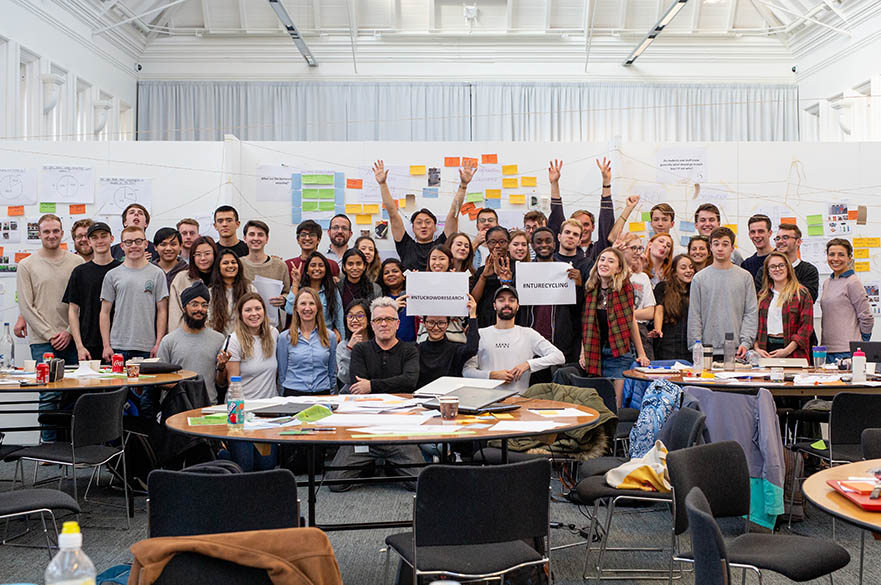
Students and academics taking part in a recycling crowd research project, Product Design Arkwright studio
Specialist facilities
At the University's City Campus, you'll have full access to our range of specialist equipment and spaces based in our Arkwright and Maudslay buildings. You'll be supported by a team of expert technical staff who will teach you to maximise the use of our resources and facilitate your development as a designer.
You'll benefit from our dedicated studios and workshop facilities, and full IT and CAD suites.
Specialised equipment includes the following:
- Rapid prototyping modellers: these machines quickly create a 3D object from a virtual computer model using a highly advanced laser process.
- Waterjet cutter: the latest generation precision technology capable of cutting up to 150mm in almost any solid material such as glass, steel, granite, marble, aluminium and rubber.
- a CNC (computer-numerical control) router and laser and plasma cutters.
- Bandsaw machines, lathes and circular saws to cut a range of materials including wood, foam, plastics and metal.
- Sanding machines, used to prepare surfaces and furniture for a high quality finish.
Take a look at the facilities, equipment and spaces you could use as a Product Design student.
Access to our workshops and labs
Enjoy scheduled access to well-equipped workshops and labs throughout your academic journey, tailored to meet project-specific needs. Additionally, our studio spaces are available for daily bookings, offering flexibility to accommodate your creative workflow. Outside timetabled hours, select machinery remains accessible, with priority given to timetabled students, but open to all when space permits.
Dedicated resource centre
Students in the School of Architecture, Design and the Built Environment have access to a dedicated resource centre. This centre, based in the Maudslay building, enables students to undertake private study in a facility equipped with computers, large format plotters and desk space, together with journals and publications – both current and archived.
Entry requirements
What are we looking for?
- Standard offer: 112 UCAS Tariff points from up to four qualifications (two of which must be A-level equivalent).
- Contextual offer: 104 UCAS Tariff points from up to four qualifications (two of which must be A-level equivalent).
Other requirements
Contextual offers
A lower offer may be made based on a range of factors, including your background (such as where you live and the school or college you attended), your experiences and individual circumstances (you may have been in care, for example). This is called a contextual offer and we get data from UCAS to make these decisions. NTU offers a student experience like no other and this approach helps us to find students who have the potential to succeed here but who may have faced barriers that make it more difficult to access university. Find out how we assess your application.
Other qualifications and experience
We may also consider credits achieved at other universities and your work/life experience through an assessment of prior learning. This may be for year one entry, or beyond the beginning of a course where applicable, for example, into year 2. Our Recognition of Prior Learning and Credit Transfer Policy outlines the process and options available for this route.
Meeting our entry requirements
Hundreds of qualifications in the UK have UCAS tariff points attached to specific grades, including A levels, BTECs, T Levels and many more. You can use your grades and points from up to four different qualifications to meet our criteria. Enter your predicted or achieved grades into our tariff calculator to find out how many points your qualifications are worth.
Getting in touch
If you need more help or information, get in touch through our enquiry form
What are we looking for?
- 112 UCAS Tariff points from up to four qualifications (two of which must be A-level equivalent).
Other requirements
International qualifications
We accept qualifications from all over the world – check yours here:
English language entry requirements
You can meet our language requirements by successfully completing our pre-sessional English course for an agreed length of time, or by submitting the required grade in one of our accepted English language tests, such as IELTS:
Undergraduate preparation courses (Foundation)
If you don’t yet meet our entry requirements, we offer Foundation courses through our partner Nottingham Trent International College (NTIC), based on our City Campus:
Advanced standing (starting your undergraduate degree in year 2 or 3)
You may be able to start your undergraduate course in year 2 or 3 based on what you have studied before. This decision would be made in accordance with our Recognition of Prior Learning and Credit Transfer Policy.
Would you like some advice on your study plans?
Our international teams are highly experienced in answering queries from students all over the world. We also have members of staff based in Vietnam, China, India and Nigeria and work with a worldwide network of education counsellors.
- Complete this simple form to keep in touch with the International Office.
Fees and funding
Preparing for the financial side of student life is important, that's why we're here to help. Take a look at our fees and funding pages for lots of handy advice and guidance.
Getting in touch
For more advice and guidance, you can contact our Student Financial Support Service by calling +44 (0)115 848 2494.
Additional costs
Your course fees cover the cost of studies, and include loads of great benefits, such as the use of our modern library, industry-standard workshops and study spaces, support from our expert Employability team, and free use of the IT equipment across our campuses.
However, you should be aware that sometimes you may incur additional costs, which for this programme could include the following:
- Year 1: Layout pads, geometry set, portfolio case, rendering pens, materials £250 (minimum) and printing £100 (minimum)
- Year 2: Layout pads and materials £160 (minimum) and printing £100 (minimum)
- Final Year: Layout pads and materials £700 (minimum) and printing £80 (minimum)
Please note that material costs may vary depending on what material you choose to work in. All other mandatory costs for the course are paid for by the University.
Our Students’ Union shop and Bonington art shop are great places to pick up drawing and writing equipment at reasonable prices and are located right in the centre of our City Campus.
Library books
Most study modules will recommend one or more core text books, which most students choose to purchase. Book costs vary and further information is available in the University’s bookshop. Our libraries provide a good supply of essential text books, journals and materials (many of which you can access online) – meaning you may not need to purchase as many books as you might think! There may also be a supply of second-hand books available for purchase from previous year students.
Placements
If you're undertaking a placement year, you'll need to budget for accommodation and any travel costs you may incur whilst on placement. Many of our placement students do earn a salary whilst on placement which can help to cover these living costs.
Degree Show
In Final Year, the School will provide infrastructure costs for your Degree Show, including course catalogue and exhibition set-up costs. If you’re selected to exhibit your work at a graduate show in London, the School will cover the cost of transporting your work, the exhibition stand and event set-up.
Our Building Blocks financial package: supporting you throughout your studies
As a student at the School of Architecture, Design and the Built Environment, you’ll also benefit from our Building Blocks financial package, which aims to help minimise the additional costs of study, while you’re here at NTU.
What you’ll receive
- All of the materials needed for induction workshops and activities, working within our workshops and laboratories.
- Free personal protective equipment (PPE), which usually includes hard-wearing boots, goggles and high-vis vests, to keep you safe on site visits and while working in our workshops.
- Access to the free professional body accreditation, as appropriate for your course.
- £20 pre-paid printing allowance for use at the NTU Print Shops, and library photocopiers. For more details about costs for additional print and copying required over and above the annual allowance please see the Printing, photocopying and scanning information on the Library website.
Tuition fees for September 2024 entry
Tuition fees are payable for each year that you are at the University. The level of tuition fees for the second and subsequent years of your undergraduate course may increase in line with inflation and as specified by the UK government. Visit our fees page for more information.
Scholarships
We offer scholarships of up to 50% of your tuition fee. You can apply for your scholarship when you have an offer to study at NTU.
Living costs
Get advice on the cost of living as an international student in Nottingham and how to budget:
Paying fees
Find out about advanced payments, instalment plan options and how to make payments securely to the University:
Additional costs
Your course fees cover the cost of studies, and include loads of great benefits, such as the use of our modern library, industry-standard workshops and study spaces, support from our expert Employability team, and free use of the IT equipment across our campuses.
However, you should be aware that sometimes you may incur additional costs, which for this programme could include the following:
- Year 1: Layout pads, geometry set, portfolio case, rendering pens, materials £250 (minimum) and printing £100 (minimum)
- Year 2: Layout pads and materials £160 (minimum) and printing £100 (minimum)
- Final Year: Layout pads and materials £700 (minimum) and printing £80 (minimum)
Please note that material costs may vary depending on what material you choose to work in. All other mandatory costs for the course are paid for by the University.
Our Students’ Union shop and Bonington art shop are great places to pick up drawing and writing equipment at reasonable prices and are located right in the centre of our City Campus.
Library books
Most study modules will recommend one or more core text books, which most students choose to purchase. Book costs vary and further information is available in the University’s bookshop. Our libraries provide a good supply of essential text books, journals and materials (many of which you can access online) – meaning you may not need to purchase as many books as you might think! There may also be a supply of second-hand books available for purchase from previous year students.
Placements
If you're undertaking a placement year, you'll need to budget for accommodation and any travel costs you may incur whilst on placement. Many of our placement students do earn a salary whilst on placement which can help to cover these living costs.
Degree Show
In Final Year, the School will provide infrastructure costs for your Degree Show, including course catalogue and exhibition set-up costs. If you’re selected to exhibit your work at a graduate show in London, the School will cover the cost of transporting your work, the exhibition stand and event set-up.
Our Building Blocks financial package: supporting you throughout your studies
As a student at the School of Architecture, Design and the Built Environment, you’ll also benefit from our Building Blocks financial package, which aims to help minimise the additional costs of study, while you’re here at NTU.
What you’ll receive
- All of the materials needed for induction workshops and activities, working within our workshops and laboratories.
- Free personal protective equipment (PPE), which usually includes hard-wearing boots, goggles and high-vis vests, to keep you safe on site visits and while working in our workshops.
- Access to the free professional body accreditation, as appropriate for your course.
- £20 pre-paid printing allowance for use at the NTU Print Shops, and library photocopiers. For more details about costs for additional print and copying required over and above the annual allowance please see the Printing, photocopying and scanning information on the Library website.
Would you like some advice on your study plans?
Our international teams are highly experienced in answering queries from students all over the world. We also have members of staff based in Vietnam, China, India and Nigeria and work with a worldwide network of education counsellors.
Complete this simple form to keep in touch with the International Office.
How to apply
Apply through UCAS.
As part of your application, you’ll submit a personal statement. Tell us about your ambitions, skills and experience. You have 4,000 characters to impress us – here’s how to make your words count.
If successful, you'll be invited to an interview where you'll present your portfolio. This is the perfect opportunity to demonstrate your potential as a designer. Take a look at our interview and portfolio advice.
Keeping up to date
After you've applied, we'll be sending you important emails throughout the application process – so check your emails regularly, including your junk mail folder.
You can get more information and advice about applying to NTU on our Your Application page.
You can apply for this course through UCAS.
If you are not applying to any other UK universities, you can apply directly to us on our NTU Applicant Portal.
Application advice
Apply early so that you have enough time to prepare – processing times for Student visas can vary, for example. After you've applied, we'll be sending you important emails throughout the application process – so check your emails regularly, including your junk mail folder.
Writing your personal statement
Be honest, thorough, and persuasive – we can only make a decision about your application based on what you tell us:
Your portfolio
If your initial application is successful, you'll be invited to submit a digital portfolio of your work.
This is the perfect opportunity to demonstrate your potential as a designer. Take a look at our portfolio advice.
Would you like some advice on your study plans?
Our international teams are highly experienced in answering queries from students all over the world. We also have members of staff based in Vietnam, China, India and Nigeria and work with a worldwide network of education counsellors.
Complete this simple form to keep in touch with the International Office.
